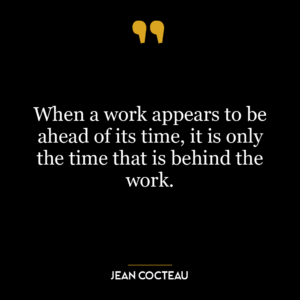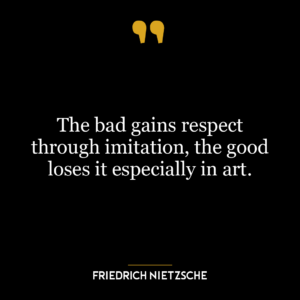Voltaire’s quote, “Originality is nothing but judicious imitation. The most original writers borrowed one from another” is a commentary on the nature of creativity and originality. It suggests that originality does not exist in a vacuum, but rather is a product of thoughtful and selective imitation. This means that the ideas we consider original are, in fact, reinterpretations or modifications of pre-existing ideas.
Voltaire implies that even the most original authors have been influenced by the works of others. They borrow ideas, styles, or concepts from those who came before them and combine them in a unique way, thus creating something that appears entirely new. This is not to say that originality is a mere copy of others’ work, but rather an intelligent reworking of existing ideas.
This principle is not confined to literature, but can be seen in all areas of human creativity and innovation, from science and technology to art and music. For instance, Steve Jobs, co-founder of Apple Inc., famously said, “We have always been shameless about stealing great ideas.” This does not mean that Apple’s products are mere copies of others. Rather, they took existing concepts and technology, and reimagined them in a way that was unique, innovative, and groundbreaking.
In the context of personal development, this quote suggests that we should not shy away from learning from others. Instead of trying to reinvent the wheel, we can build upon the wisdom, experiences, and knowledge of others. This does not mean copying them, but rather, understanding their ideas and integrating them into our own unique perspective. This process can lead to personal growth and development, helping us to become more innovative and creative individuals.
Furthermore, understanding that originality comes from judicious imitation can alleviate the pressure to be completely unique. It encourages us to appreciate and learn from the work of others, and to understand that our own originality can be a blend of influences, experiences, and ideas.
In today’s world, where information and ideas are readily available, this principle is more applicable than ever. We have access to an unprecedented wealth of knowledge from which we can draw inspiration and learn. The key is to be judicious in our imitation, to thoughtfully select what to incorporate into our own work or life, and to always strive to add our unique perspective or twist.











